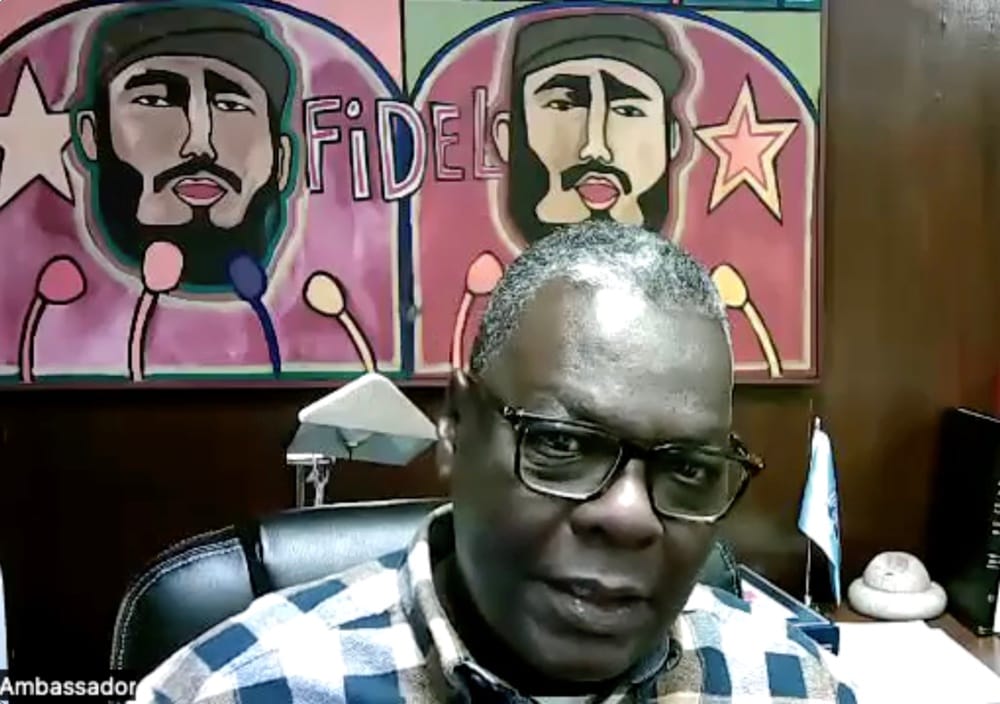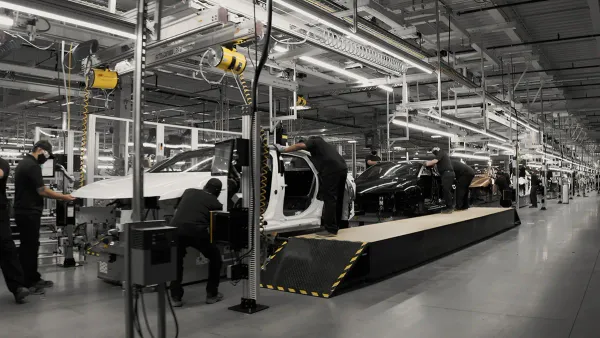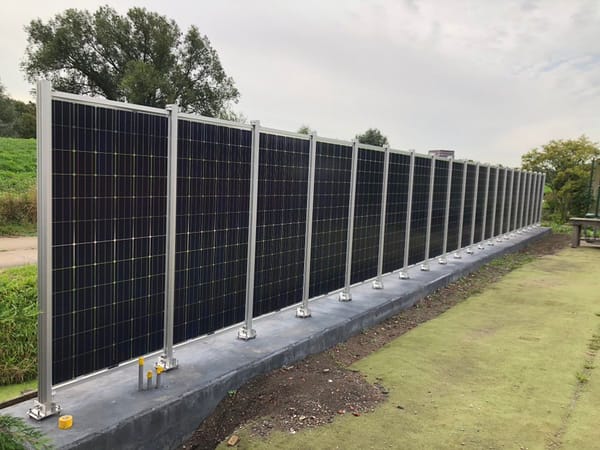Outgoing G77 Leader Discusses Debt Forgiveness and Loss And Damage Fund

Cuban Ambassador Pedro Luis Pedroso Cuesta has been one of his country’s lead negotiators on climate issues for decades. This month he is returning to Cuba and stepping down as president of the G77+China coalition and as his country’s Permanent Representative to the United Nations. As leader of the G77 he oversaw the group's first Global South Summit since 2005, a significant accomplishment and perhaps a statement about increasing relevance of the group.
Yesterday Amb. Pedroso sat down to provide me with an exit interview, where we discussed a broad range of climate issues. Below is a condensed version of our interview.
This morning Barbados Prime Minister Mia Mottley called for a developing country debt jubilee – cancellation to help further climate goals. Assuming you support this idea, what obligation would developing countries have in return for such a large debt cancellation?
I haven’t seen the proposal from Prime Minister Mia Mottley, who I know has been very closely involved in the conversation on the need to transform the international financial architecture and economics geopolitically in general. She has been one of the most outspoken Global South leaders on this issue. But the truth is, this has been an issue for [a] long [time].
It’s critical for middle income countries, which is the case for Barbados for example. Most middle income countries are struggling with issues like external debt – also at a time when these countries are most vulnerable to climate change for example. But precisely because of their situation as middle income countries, they are left out of international financial flows. Particularly multilateral development assistance. Because the multilateral development institutions, particularly the financial institutions, consider that they are not a priority, the priority should be the least developed countries.
This is not a new idea, a debt jubilee. If there were to be something like that, what sort of obligation would the receiving countries have?.
I think in the first place, it’s a moral question. Most of the highly in debt countries are finding themselves in the middle of a situation they have been pushed into, by the international financial organizations run by Western governments and because of geopolitics.
So far less than $800 million has been committed to the Loss and Damage Fund. Do you expect rich countries are simply delaying so they can make a case for a global tax, like on marine fuel or airline travel?
Those promises were absolutely insufficient in terms of loss and damage due to climate change. The amount of resources that have to be invested for assisting developing countries, the most vulnerable among them, because of climate change is just massive. And $800 million is like a grain in the sea. It gives us some hope, but it is completely insufficient.
Do you think rich countries are purposely delaying adding to the fund so they can make a case for levying a global tax to pay for this instead?
There can be many things in between. We have seen politics every time. There has been delay for all kinds of things. That may be one case. We are starting actually a process now in G77 on tax matters with the purpose to get a multilateral instrument on tax, particularly taxing very powerful transnational corporations that make gains without returning anything for development. We are looking into that now, this week.
Have COP meetings become a struggle between the biggest emitters? What role can developing countries play, and how do they set expectations for negotiations?
I think all parties have an important role to play but of course logic would have that its the weight of the economy, the level of emissions. But I would not say small countries have a lower role or less a role than the others. And of course Cuba would oppose that because we believe that ultimately smaller countries are the ones who suffer more. The more you suffer, you need a space to convey those concerns and priorities. And you need to rise to the circumstances.
That also depends on the technical backing that every delegation has. Everybody knows developing countries have less capacity for technical support. You see larger delegations with fifty people in the delegation, and some of them playing no role but technical, the advising role. And then the smaller delegations with eight or ten people maximum. Of course there are areas you can’t cover.
From countries other than Cuba, who do you admire the most among your fellow climate negotiators?
[Laughs] You’re asking me a very difficult question. I don’t want to be put on the spot by singling out somebody.
I feel a lot of pride for AOSIS, these are the most vulnerable countries that have managed to be a very important body on the differing issues that impact small developing states. I also feel satisfaction with my colleagues in the larger G77, particularly during our chairmanship. We felt all along accompanied by the whole of the group and having the support of the group, we managed to develop a system that relied on the respective capabilities of the delegations of the G77. We could not have done it alone.
Like what you see here? Please forward to a colleague.
Ideas
The Jevons Paradox posits that the more efficient an energy source becomes – and as it becomes cheaper – humanity will consume more of it. For example, when coal-fired steam engines became more powerful in Britain, the appetite for coal increased. This is a bad portent for global energy efficiency efforts.
Oil companies are recording record profits and yet oil stocks are underperforming the S&P 500. Some analysts think this is because the market is pricing in a long-term decline for oil stocks as fossil fuels are pushed out by clean energy.
Keeping promises is harder than making them. One study says China will miss its 2025 climate goals, another says the UK will miss its goals, and yet another says that despite record US renewable investment America won’t hit its goals. Also, despite the COP28 pledge, France is keeping agricultural diesel subsidies.
Back when I worked at USDOE in the late 1990’s, policy folks there derided the IEA as a copycat of the US’ Energy Information Administration – with inferior data. Today the IEA is a bigger organization and vastly more influential in global policy making because it has expanded beyond its original mandate of fuel production and consumption data collection and projection to climate-related and clean energy analysis. Unfortunately, because of the way the EIA is structured, it won’t see such a (r)evolutionary change without approval from a Congress that has been generally anti-climate.
Climate Politics News of Note
It’s time to cancel debt for climate-stricken nations, Barbados leader says [Politico]
COP28 president urges countries to set plans for fossil fuel transition [Reuters]
Biden Administration Is Said to Slow Early Stage of Shift to Electric Cars [New York Times]





